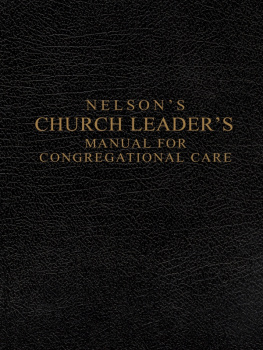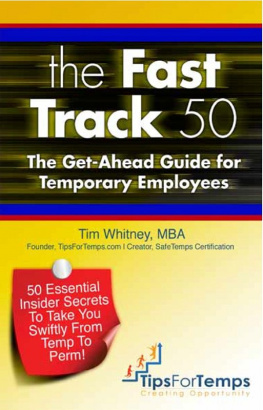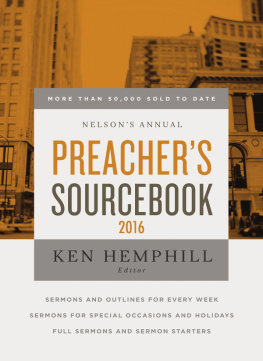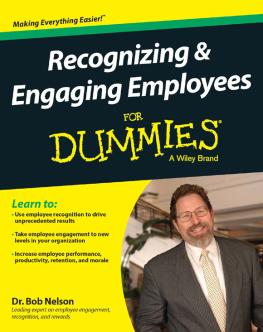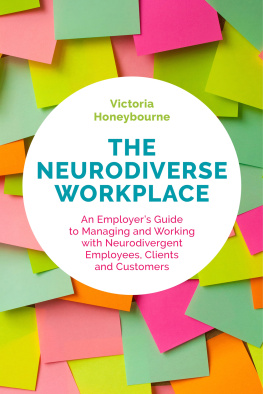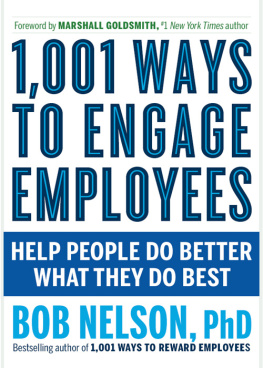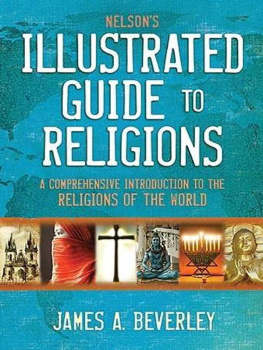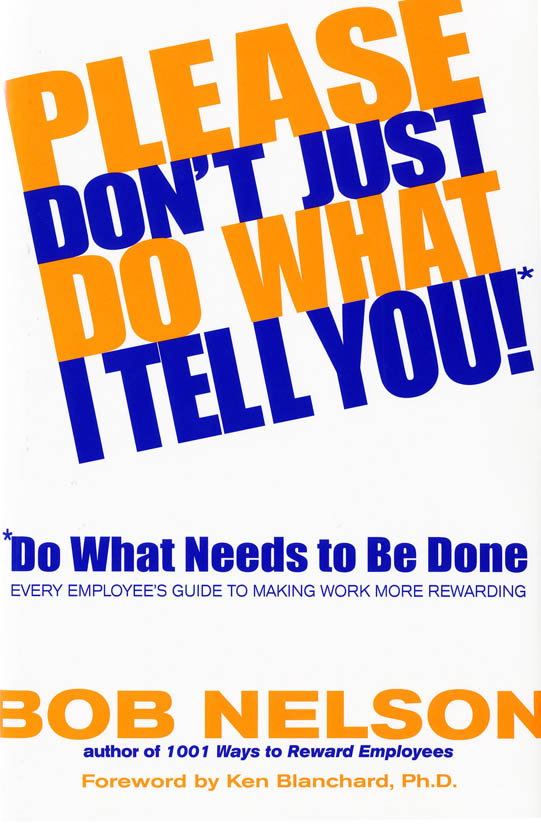PLEASE
DONT JUST
DO WHAT
I TELL YOU!*
*DO WHAT NEEDS TO BE DONE
Every Employees Guide to Making Work More Rewarding
BOB NELSON, PH.D.

Bob Nelson and I have been colleagues and friends for more than fifteen years. This book, Please Dont Just Do What I Tell You! Do What Needs to Be Done, has a wonderful history. Bob and I talked for some time about possibly writing a book together around Message to Garcia, that classic fable about the importance of employees doing what they are told to do. Now, more than a decade later, Bob has appropriately repositioned that message to one that is more in tune with the times.
Why? The old deal is over at work. Loyalty used to get you job security. When I graduated from Cornell, a friend of mine got a job at AT&T. He called home and his mother cried. She said, You are set for life. Today, regardless of where you work, nobody is set for life. With the amount of change facing every organization today, all bets are off for the future.
If the old deal is off, what is the new deal? In talking to people around the world, I have asked, If you cant get job security at work, what do you want? They tell me they want two things: honesty and opportunity. First, todays employees want the straight storythey dont want to be lied to. Dont tell us you are not going to lay people off and then go ahead and do so six months later. Second, todays employees want opportunity: opportunity to learn, to build knowledge, and to develop their skills. People know that their best job security is to increase their marketability and the value they have to offer where they work.
Tom Peters is talking all the time now about Brand You. Everyone soon will have their own portfolio describing the opportunities they have had and the skills they bring to the party. The best way for people to learn today is to have opportunities to take initiative. People have to have a chance to make mistakes and to learn from those mistakes. And they have to have the strategies and techniques to make a difference at work. Thats what this book is all about. Bob shows that we each can create our own opportunity, regardless of where we work or the job we do.
Bobs message is also timely in that the great organizations that are beating the competition today are those that are customer-focused. Theres nothing that drives a customer crazy quicker than to have a frontline employee quack like a duck and say: Im sorry, its our policy, or I just work here, or Do you want to talk to my supervisor? Enlightened customers today want to deal with somebody who has the power to make decisions. Thats what beats the competition, and thats what keeps your workforce motivated.
The best organizations are finding that the best service comes from employees who are given a chance to have an impact in their jobs. Again, Bobs book shows us that for every position, at any level, employees are closer than anyone else to the problems and opportunities of their own jobs, and thus better able to make a difference with their customers, colleagues, and even their managers.
Read Please Dont Just Do What I Tell You! Do What Needs to Be Done and tell everyone you know about it! It will really help you create opportunities for yourself and those with whom you work to make a difference. My guess is that your boss will like it too. Good on you all!
Ken Blanchard, Ph.D.
Co-author, The One Minute Manager
This book has a simple premise: You never need permission to do great work. Wherever you work, whomever you work for, management expects that you will always use your own best judgment and effort to do what needs to be done for the organization to be successful.
I call this The Ultimate Expectation. Its a message that every employee needs to hear, but one that few employers explicitly state.
Although it may sound strange, every employer today is looking to hire essentially the same person: someone who takes initiative. Of course, specific employers needs are as varied as the skills and abilities of the workers they hire; but at the core, its the same individual they seek. The person whoregardless of his or her background, training, or abilitiescan be dropped into a work situation and take independent action is worth his or her weight in gold.
Being able to fulfill The Ultimate Expectation is a virtue every worker possesses, but few seem to demonstrate. To do what needs to be done without being told is the hallmark of professional excellence.
To serve a customer, solve a problem, assist a co-worker, make a money-saving suggestion, develop an idea, or improve a process are actions that are needed from all employees every day, indeed, every moment they are employed.
In fact, I know of no company today that can survive with employees doing only what they are told to do. The competitive environment, the amount of change, and the speed of business today in most markets is too intense for employees to act otherwise. An organization that expects employees to do only what they are told is on a slippery slope to being out of business in just a matter of time.
Compare your company with any of its competitors. More likely than not, you have similar products and services, technology and channels of distribution, marketing strategies, and more.
What makes one company a success while another struggles to survive? Its the peopleand the daily initiative, energy, and commitment these people bring to their work, without waiting to be told what to do.
The days of superiors and subordinates are long past. Work today is a partnership, and everyones in it together. The nature of workof business itselfis changing too quickly for employees to wait for direction. They must jump in with both feet.
Employees know best how to do their own jobs better. They are most familiar with the problems that arise in their jobs, as well as the needs of the customers they serve. They see and experience firsthand what most upper managers can only infer from reports. For employees at all levels to be engaged and thinking about how to do their jobs better allows the organization to be more responsive to its customersand more competitive in achieving its goals.
We are fast moving toward being a nation of self-managed employees, in which every person needs to understand the importance of his or her individual contribution to the organizations mission and purpose, and strive to take initiative to have a greater impact on the job, department, and organization.
Along the way, your work will become more exciting, you will see the impact of your actions, and you will learn, grow, and develop in your position. Youll gain a reputation as someone who makes things happen and be better able to take on larger and more significant responsibilities and reap the rewards for doing so.
This book is intended to be a starting point for further discussion. It represents an attitude and philosophy whose time has come, an attitude that can benefit every member of the organizationas well as the organization as a whole.
Bob Nelson
San Diego, California
Spring 2001
Contents
Part 2 THE ULTIMATE EXPECTATION
Do What Needs to Be Done
Part 3 SIMPLE STRATEGIES AND TECHNIQUES
Ways to Get Started Now



